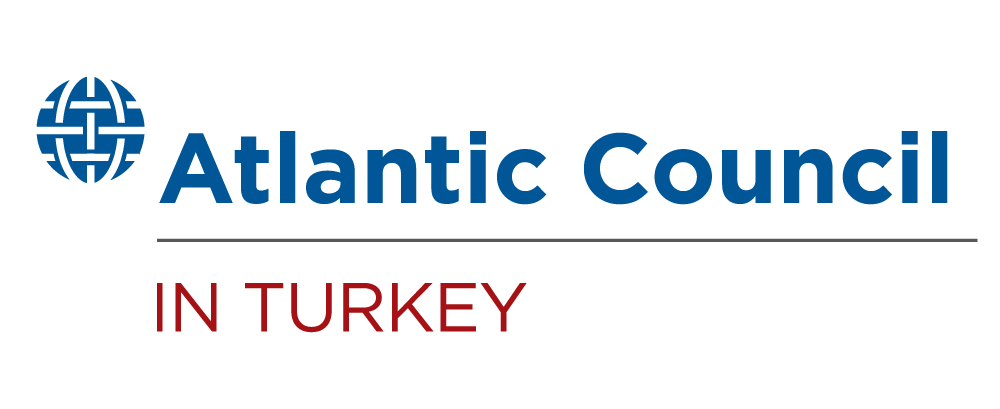Event Recap
On September 16, the Atlantic Council IN TURKEY organized a webinar on US withdrawal from Afghanistan and its implications to Turkey and the region.
The event featured a distinguished panel composed of Scowcroft Middle East Security Initiative Director Kirsten Fontenrose; former Director General for the International Security Affairs at the Turkish Ministry of Foreign Affairs Amb. Alper Coşkun; Associate Professor in the Department of Political Science and International Relations at TOBB University of Economics and Technology and Senior Researcher at the HUGO Observatory of Environment, Migration and Politics at the University of Liège Başak Yavcan; and former Turkish Minister of Foreign Affairs and former NATO Senior Civilian Representative in Afghanistan Hikmet Çetin. The panel was moderated by Atlantic Council South Asia Center Nonresident Senior Fellow Marika Theros and hosted by Atlantic Council IN TURKEY Director Defne Sadıklar Arslan, who delivered welcoming remarks.
The virtual event, which brought together experts and former officials from the United States and Turkey, took place one month after the Taliban completed their rapid takeover of Afghanistan by seizing control of Kabul in the wake of the US withdrawal. The panel discussed how the US withdrawal would affect the strategic calculus of its partners and allies in the region, as well as how it would add new dynamics to counterterrorism and migration issues both for Turkey and the international community. The panelists also shed light on the repercussions of the fluid situation on US and NATO credibility in the region.
Kirsten Fontenrose provided an overview of the reactions in Middle Eastern capitals to the US withdrawal from Afghanistan and the Taliban takeover. Commenting on the views of Qatar, Saudi Arabia and the United Arab Emirates to the recent turmoil in Afghanistan, Fontenrose described the calculations of Gulf partners involving Russia and China. To name one, the United Arab Emirates is prone to ignore further demarches from the US regarding its relationship with China for the sake of keeping track of intelligence on the ground, as China shares the goal of preventing terrorist groups from using Afghanistan as a base. Relating the views of these capitals to the peculiarity of Afghanistan as a country where the US does not have a close partner very near, she identified Central Asia and the Arabian Gulf as options for operational bases while also noting their disadvantages. Also delivering a detailed overlook of the discussions in Washington related to counterterrorism, Fontenrose portrayed the dichotomy that the Biden Administration is facing: Should the US cooperate with the Taliban, a human-rights abusing organization, in conducting counterterrorism efforts against ISIS and other extremist groups, or should the Administration risk this cooperation domestically, as its pillars of policy are contingent upon defending human rights? Moreover, Fontenrose accentuated Iran’s potential involvement in Afghanistan by benefiting from vacuum caused by the US withdrawal and the crisis in Western counterterrorism operations.
Giving an historical overview of Turkey’s engagement in Afghanistan and in particular its deliberate decision to not conduct combat operations, Amb. Alper Coşkun commented on how Turkey has been positioning itself with the Taliban in current circumstances. On one hand reaching out and engaging with the Taliban, but also making the point to the international community that it expects the newly formed government to abide by international norms, Ankara should be leveraging its influence in Afghanistan in Coşkun’s perspective. However, the Ambassador is skeptical about how far this leverage could work in Turkey’s relations with the United States, as Washington has made it very clear that Afghanistan is yesterday’s priority and bilateral relations have a plethora of problems. He also called for a greater degree of synchronization between Turkey and the United States, as well as between Turkey and the European Union, particularly on migration. When it comes to the regional repercussions of Turkey’s leverage, Amb. Coşkun was more hopeful as Turkey and Saudi Arabia have a common interest in ensuring that the Taliban are encouraged in the right direction. Turkey’s outreach and engagement capabilities, together with Saudi Arabia’s financial funds and Pakistan’s constructive role that could be enabled by close Turkish-Pakistani relations were listed as positive factors towards regional cooperation by Coşkun.
Başak Yavcan drew attention to the migration aspect of the Taliban’s takeover. Having already faced problems with the integration of Syrian refugees, the current flow of Afghan refugees make Ankara’s decision-making harder and put Turkey in difficult position from her point of view. Underlining the imminent need to address the root causes of the problems that Afghan society tackles, Prof. Yavcan drew attention to the homogenous nature of the current government and neglect of women in public life. The Taliban led government is also in a very difficult and vulnerable economic position. In Yavcan’s perspective, this creates an advantage for countries engaging in Afghanistan, as the Taliban cannot afford long-term isolation. When it comes to the migration flows, which grabbed the world’s attention, Prof. Yavcan emphasized the collective need to ensure the integration and resettlement of Afghan people. However, she recognized that the current atmosphere in Turkish public opinion is more complicated. While the Turkish public is aware of the dangers of living in Afghanistan, due to the fatigue with Syrian refugees, they are against an open border policy and don’t want any Turkish intervention in the country, neither in the form of troops nor the protection of Kabul airport. In her assessment, this creates a necessity for international cooperation with Turkey on the issue.
Hikmet Çetin, through his valuable experience on the ground and his connections with prominent figures from Afghanistan and Pakistan, provided insights on how the future of Afghanistan could evolve. Noting that this is the second time in history that the country has been left alone by the international community since late 1980s, Çetin criticized the lack of nation-building efforts and investment in the social and economic development of the Afghan society by the international community. While listing scenarios for the future of Afghanistan, the former NATO Senior Civilian Representative described the fault lines in the Taliban revolving around hard-liners and moderates, who are more open to negotiations and dialogue. In Çetin’s perspective, these two factions are unlikely to cooperate in the future and won’t be able to work together. Çetin cautioned that the current Taliban-led government is dominated by Pashtuns and hardliners taking the important ministries, at the expense of representing Turkmens, Tajiks and women. In engaging with the Taliban to push for a more inclusive government, Pakistan and Turkey have a unique position in Çetin’s perspective. While the former is worried about the extremist spillover and future security implications for the region, the latter is already dealing with Al Qaida and ISIS inside of Turkey, per Çetin’s assessment. Çetin points out the need for Turkey to work with Iran in order to prevent the movement of terrorist from Afghan.
In general, the panel identified the risk of Afghanistan’s becoming a training ground for extremists and terrorist groups and drew attention to the need for the international community to address the root causes of problems in Afghan society. Along with the moderator Marika Theros, the panelists emphasized the fluid situation in Afghanistan and the urgent need for cooperation on counterterrorism and migration.
Concept
The Taliban’s lightning fast takeover of Afghanistan in the wake of the United States’ withdrawal has upended the regional status quo. Countries across the region are recalibrating their policy in response to the new reality in the country. For Turkey, a NATO member, the picture is multi-dimensional, encompassing strategic, security, and migration issues.
The Taliban’s advance has pushed thousands of Afghans to seek refuge in neighboring countries, with many making a long trek through Iran to Turkey and beyond. Turkey is not willing to handle the new influx of migration given that it currently hosts 3.7 million Syrian refugees and around three hundred thousand Afghan refugees, which makes it the largest refugee hosting country in the world. Turkey has beefed up security on its border with Iran in anticipation of an even greater influx following the Taliban’s seizure of Kabul.
The future of international engagement with Afghanistan also rests on several questions that remain to be answered such as the nature, composition and ideology of the to-be-formed administration. The Taliban have professed their desire to for an inclusive government, the protection of human rights, and amnesty for anyone who opposed them. However, the recently announced interim government, all-male and drawn mostly from Taliban veterans, will do little to assuage the concerns of international community and Afghan population. Thousands of Afghan civilians are desperate to get out of the country, do not trust the change and tone, and view the Taliban as no different than the force ousted from power twenty years ago.
The chaos of developments in Afghanistan also raises serious questions about NATO after a twenty year mission in the country. The circumstances of the US withdrawal and the effect of US policy decisions on its allies could have implications towards the future of NATO’s long term cohesiveness as well as its future presence in the region.
Agenda
Panelists
Alper Coşkun
Former Director General for International Security Affairs at the Turkish Ministry of Foreign Affairs
Kirsten Fontenrose
Director, Scowcroft Middle East Security Initiative, Middle East Programs
Atlantic Council
Başak Yavcan
Associate Professor, Vice Chair of the Center for Social Policy Research, Department of Political Science and International Relations, TOBB University of Economics and Technology
Senior Researcher, HUGO Observatory of Environment, Migration and Politics, University of Liège
Moderated by
Marika Theros
Nonresident Senior Fellow, South Asia Center
Atlantic Council
Welcoming remarks
Defne Arslan
Director, Atlantic Council IN TURKEY
Atlantic Council

The Atlantic Council in Turkey aims to promote dialogue and strengthen transatlantic engagement with the region through research, programming and high-level discussion forums to address critical issues around energy, economics, migration, and security.



On Twitter? Follow the conversation @AC_Istanbul and @AtlanticCouncil